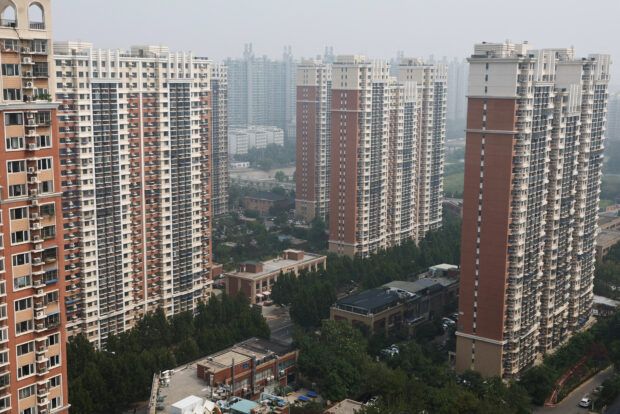World Bank keeps China 2023 GDP growth forecast but cuts 2024 outlook

FILE PHOTO: A general view of residential buildings in Beijing, China September 6, 2023. REUTERS/Tingshu Wang/File Photo
BEIJING – The World Bank has maintained its forecast for China’s 2023 economic growth at 5.1 percent, in line with its previous estimate in April, but trimmed its prediction for 2024 to 4.4 percent from 4.8 percent, citing the persistent weakness of its property sector.
For East Asia and the Pacific including China, the bank slightly trimmed its 2023 gross domestic product growth forecast to 5 percent from its prior 5.1 percent estimate, the World Bank said in its semi-annual regional update released on Sunday.
For 2024, the bank lowered its regional outlook to 4.5 percent growth from 4.8 percent, dragged down by external factors including a sluggish global economy, high interest rates and trade protectionism.
“Almost 3,000 new restrictions were imposed on global trade in 2022, three times as large as those in 2019,” the World Bank said.
For China, the bounce back from the reopening of the economy following three years of ultra-stringent zero-COVID policies has faded, and elevated debt and weakness in its property sector are weighing on growth, the World Bank said in the report.
READ: China swings into deflation as recovery falters
After months of mostly dismal data, the world’s second-largest economy has started to show signs of stabilization.
Factory activity
China’s factory activity expanded for the first time in six months in September, an official survey showed on Saturday.
Initial signs of improvement had emerged in August, with factory production and retail sales growth accelerating while declines of exports and imports narrowed and deflationary pressures eased. Profits at industrial firms posted a surprise 17.2 percent jump in August, reversing July’s 6.7 percent decline.
Analysts say more policy support will be needed to ensure China’s economy can hit the government’s growth target of about 5 percent this year.
READ: China’s central bank set to boost liquidity but keep policy rate steady
Structural reforms
Stronger structural reforms including further liberalization of the “hukou” residence permit system, stronger social safety nets and greater regulatory predictability for investments in innovative and green products could help revive consumption and investment, creating the basis for sustainable growth, the World Bank said.
China’s economic sluggishness has polarized government advisers over the best way forward.
The pro-reform camp is beating the drum for faster structural reforms, including relaxing the hukou system, to spur consumption and removing market entry barriers for private firms at the cost of state giants.